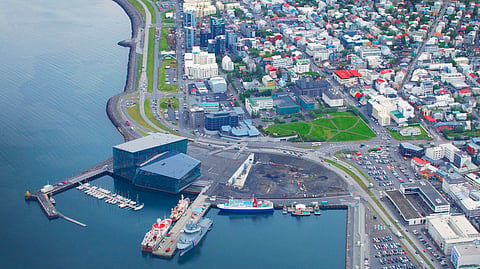

Iceland Seafood International (ISI) has experienced a difficult first 9 months of the year, topped off by a loss-making third quarter, with the group posting a net loss of €5.5 million (USD $6 million) in its Q3 report this week.
Strong sales at the beginning of the year contributed to total sales of €318.1 million during the first nine months of 2023 (a marginal increase of 1% in comparison to 2022).
However, in the third quarter, the Group's sales suffered a significant slowdown, totaling €95.8m, a 12% drop from the same period in 2022.
Another key contributor to Iceland Seafood's loss in the quarter resulted from its discontinued operation in the UK (ISIUK), at €-18.8m. Transaction costs from sale of the business contributed to the loss.
However, even without the UK loss, ISI Group still made a loss before tax of €1.9 million (USD $2.1 million) during the first three quarters of 2023, compared last year's profit of €8.7 million (USD $9.5 million).
Disappointing results during the first nine months of the year, as well as management forecasts for the remainder of the year, have meant ISI has had to revise its normalised PBT outlook range downwards to €0.5-€2.0m.
Sales are expected to pick up over the holiday season, however. ISI highlighted that Q4 is a "key trading period" for the Group, expecting increased demand for smoked salmon during the Christmas period from both its Irish and Spanish businesses. Additionally, the summer season for Argentinean shrimp begins in December, while a seasonal peak in cod sales is typical during October and November.
"The declining consumer purchasing power in the main trading countries, together with the ongoing uncertainty due the ongoing geopolitical turmoil, has led to lower sales in Q3. Increase in interest rates have also led to rising capital costs," said Iceland Seafood CEO Ægir Páll Friðbertsson.
"In Q3 the price of whitefish and shellfish has decreased, which has led to inventory write offs and a lower margin on product sales. This price development has also resulted in large buyers reducing their inventory, also negatively impacting sales during the period."
"However, when prices reach equilibrium, demand will increase again, which will have a positive effect on the company's sales and profit generation," Friðbertsson said.
Iceland Seafood International sold off its UK value-added business ISIUK to Danish seafood processor Espersen in September. At the time, former CEO Bjarni Armannsson said the company's investment in its UK venture "has been a great cost for the company and its shareholders", adding that it had been "a very tough market".
Presenting the Q3 results, Friðbertsson echoed Armannsson's previous comments, saying that the UK business was the activity that "played the most significant role in the poor operating results of recent years".
"I believe that after the sale of ISIUK, there will remain strong value-added companies in Spain and Ireland; that will be profitable in the future," he said.
However, Friðbertsson, who replaced Armannsson as ISI CEO in September, warned that continuing global economic uncertainty means the company has to tread carefully.
"There is great uncertainty in the economic affairs of the company's main trading countries, as economic forecasts indicate. The focus in the short term will be to improve the operation of existing business units; the company's capital structure and review the company's strategy," Friðbertsson said.
"The goal will be to make Iceland Seafood ready to meet its challenges and opportunities in the future, which I believe will be beneficial to the company, owners and staff," he concluded.
